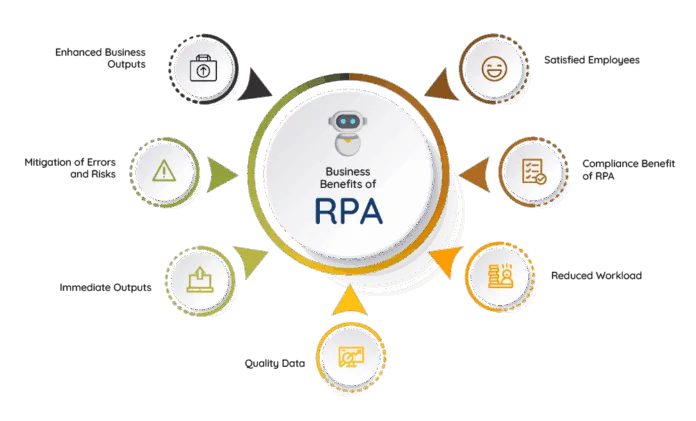
In today’s digital age, robotic process automation is transforming how companies manage their operations. By automating repetitive, rule-based tasks with software robots, businesses are streamlining workflows, reducing costs, and increasing efficiency. From finance and HR to customer service and IT, robotic process automation (RPA) is becoming a core part of enterprise digital transformation strategies.
What Is Robotic Process Automation?
Robotic process automation refers to the use of software robots (or bots) to automate high-volume, routine tasks that were previously performed by humans. These bots mimic human actions—like logging into systems, entering data, copying files, or generating reports—without requiring human intervention.
Unlike traditional automation that relies on custom-coded scripts, RPA tools are user-friendly and can be trained with minimal coding knowledge. This makes them accessible to a broader range of business users and not just IT departments.
Key Benefits of Robotic Process Automation in Business
Increased Efficiency and Speed
RPA bots work 24/7 without fatigue, executing tasks much faster than humans. This boosts operational efficiency and enables quicker turnaround times.Cost Savings
With automation, businesses can reduce their labor costs significantly. Bots handle repetitive tasks, allowing human workers to focus on more strategic initiatives.Improved Accuracy
Human errors in repetitive tasks like data entry can be costly. RPA eliminates these mistakes, ensuring accuracy and consistency in operations.Scalability
RPA systems can be easily scaled based on business needs. During peak workloads, more bots can be deployed without recruiting additional staff.Enhanced Compliance
Bots follow strict rules and maintain logs of all activities, ensuring businesses meet regulatory and audit requirements.
Popular Use Cases of RPA Across Industries
1. Finance and Accounting
RPA is widely used for invoice processing, accounts reconciliation, and financial reporting. These bots help speed up monthly close cycles while ensuring accuracy.
2. Human Resources
In HR departments, RPA tools automate tasks like employee onboarding, benefits enrollment, and payroll processing, improving employee experience and reducing admin work.
3. Customer Service
By integrating RPA with customer service platforms, businesses can automate ticket generation, status updates, and customer notifications—offering faster resolution times.
4. IT Operations
RPA assists IT teams by automating password resets, software installations, system monitoring, and backup processes—enhancing IT service delivery.
5. Supply Chain Management
Tasks such as inventory updates, order processing, and shipment tracking are automated with RPA, increasing supply chain visibility and reducing manual errors.
How RPA Supports Digital Transformation
Robotic process automation is a cornerstone of modern business automation strategies. It enables companies to digitize legacy workflows and build agile operations without major infrastructure changes. When integrated with AI and machine learning, RPA becomes even more powerful, capable of handling unstructured data and making intelligent decisions.
Businesses adopting RPA gain a competitive advantage through workflow optimization, improved agility, and greater customer satisfaction. It also empowers employees to engage in more creative and value-adding activities, enhancing overall productivity.
Challenges to Consider
While RPA offers numerous benefits, businesses should be aware of challenges such as:
Process standardization before automation
Change management and employee training
Ongoing maintenance of bots and systems
With careful planning and a phased implementation strategy, these challenges can be effectively managed.
Conclusion
Robotic process automation is no longer a future concept—it’s a present-day necessity for businesses aiming to remain competitive and efficient. Whether it’s reducing operational costs, minimizing errors, or scaling operations, RPA delivers measurable value across all departments. As technology evolves, the integration of RPA with AI and analytics will further revolutionize the business landscape.